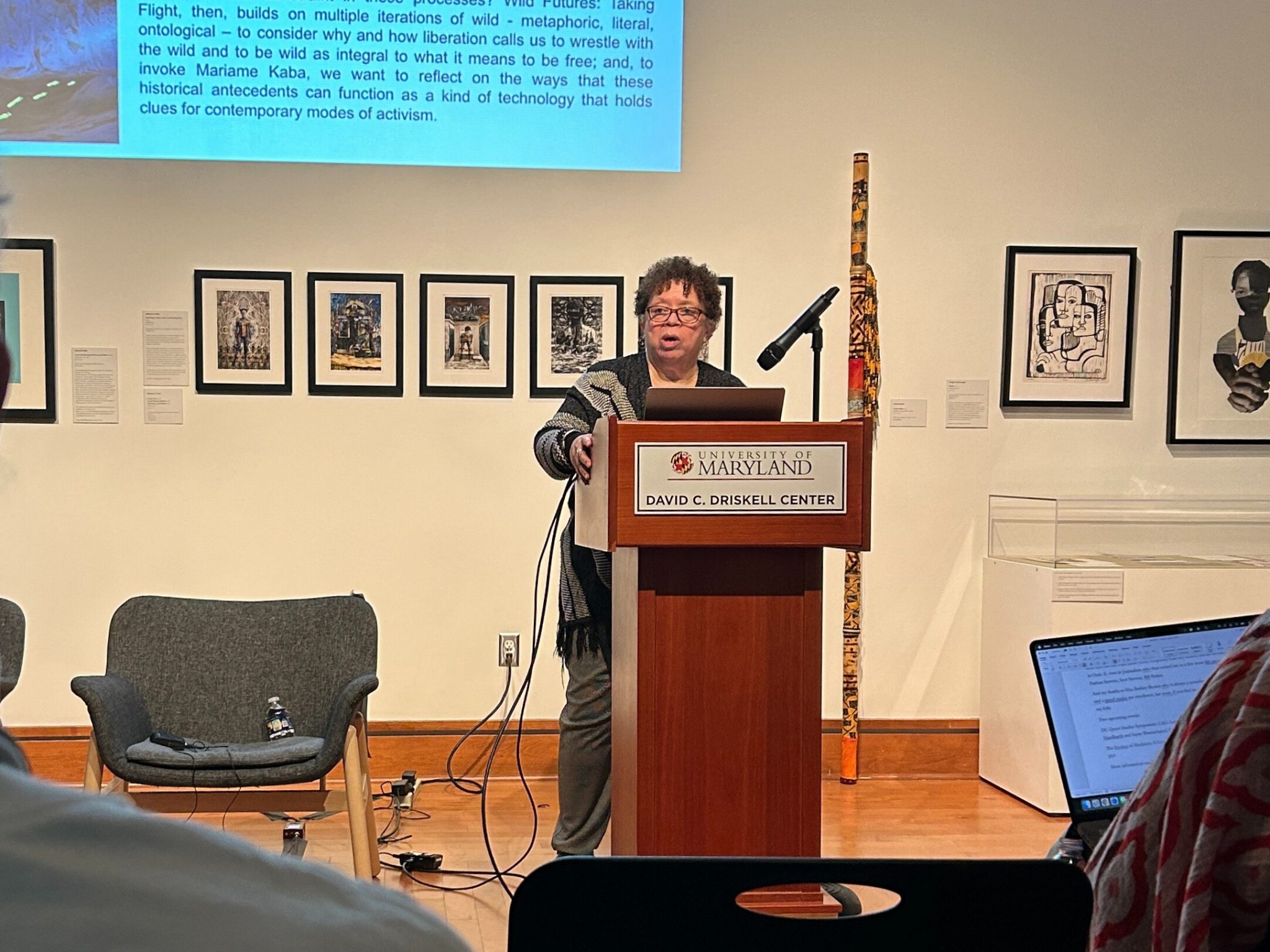By Tess Phillips
University of Maryland community members commemorated the fifth annual Harriet Tubman Day at the David C. Driskell Center on Monday.
The event honored the legacy of Tubman and other freedom seekers through guest speakers, presentations and discussions. It was hosted as a collaboration between the Harriet Tubman Department of Women, Gender, and Sexuality Studies Department, Arts for All initiative and the arts and humanities college.
Tubman’s great-great-great-grandniece Ernestine Wyatt talked about Tubman’s mindset during her activism. This idea, which speakers later referenced, set the event’s tone.
“You see, her mind became free much earlier than her body,” Wyatt said. “She paid close attention and was informed from her dreams and visions.”
Tubman, born in Dorchester County, spent her life working toward the abolition of slavery. She is widely remembered for her efforts with the Underground Railroad, which successfully freed thousands of enslaved people by helping them escape.
The event was divided into four main sections of presentations after Wyatt’s introduction, all focusing on different topics related to Tubman’s journey.
In a panel discussion, culinary historian and chef Leni Sorensen and Samuel Black, director of the African American program at the Senator John Heinz History Center, spoke about the environment’s role and the challenges it presented for Tubman.
[Miniature mascots: UMD class uses diamondback terrapin hatchlings to teach climate change]
The pair described examples of meals on the journey to freedom and how various types of flora and herbs served different purposes to the freedom seekers.
The day included presentations examining Tubman’s involvement in the Combahee River Raid. Tubman led a major military operation in the raid to save about 700 enslaved people during the Civil War in 1863 in South Carolina, according to the National Museum and African American History and Culture’s website.
A featured artist also spoke about how Tubman has impacted her work.
Michelle Rowley, who helped organize this event, is an associate professor in the women, gender and sexuality department, which was named after Tubman in 2020.
Rowley and others in the department wanted to ensure that beyond simply stamping Tubman’s name on the department, an annual commemoration would be hosted on Harriet Tubman Day.
Rowley said this year’s theme of “Wild Futures: Taking Flight” intended to encourage attendees to think deeper about “the pragmatics of flight,” Rowley said. Attendees should reflect on the efforts made by the freedom seekers, especially considering the resources that were available to them, Rowley added.
“One of the things that we try to do each year is to identify a theme that helps us … grapple with Harriet Tubman’s legacy, to grapple with questions of freedom, questions of liberation,” Rowley said.
[Hundreds gather to celebrate Native American culture at annual UMD powwow]
Jayla Ross, a junior immersive media design and studio art major, won this year’s annual poster design contest for the event. Ross wanted to “emphasize Harriet Tubman’s incredible impact, even in her physical absence in the poster.”
Fatemeh Keshavarz, director of this university’s Roshan Institute for Persian Studies, attended the event because of her interest in figures such as Tubman and understanding the complexities of race.
“Right now in particular, as we think about all the challenges we face in education, in doing our jobs properly in the university, being able to think about these complex questions from these kinds of perspectives is very important for learning,” Keshavarz said. “I enjoyed it, but I’m hoping that I will take some things from this to my classroom when I teach.”



